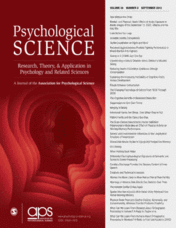Testosterone promotes generosity, but only when there’s no competition
 Boosting testosterone can promote generosity, but only when there is no threat of competition, according to new research by <link people maarten-boksem>Dr Maarten Boksem. The findings show that testosterone is implicated in behaviours that help to foster and maintain social relationships, indicating that its effects are more nuanced than previously thought.
Boosting testosterone can promote generosity, but only when there is no threat of competition, according to new research by <link people maarten-boksem>Dr Maarten Boksem. The findings show that testosterone is implicated in behaviours that help to foster and maintain social relationships, indicating that its effects are more nuanced than previously thought.
“Testosterone may mediate competitive and potentially antisocial behaviour when social challenges or threats need to be confronted and handled,” explains Boksem. “But it can also induce pro-social behaviour in the absence of these threats, when high status and good reputation are best served by positive behaviour.” The research was published in Psychological Science, a journal of the Association for Psychological Science.
Animal studies have shown that testosterone plays an important role in dominance behaviour, so Boksem and colleagues reasoned that testosterone in humans would also increase a drive for social status.
“But we doubted that this drive would automatically result in aggressive and antisocial behaviours,” says Boksem. “We hypothesized that testosterone could perhaps also lead to pro-social behaviour if such behaviour would be beneficial for maintaining or obtaining social status.”
To test this hypothesis, Boksem and his co-authors from two other universities in the Netherlands asked 54 female volunteers to ingest a liquid solution several hours before participating in an investing game. Some received a placebo solution, while others received one containing testosterone.
In the investing game, participants were given €20 and instructed to keep whatever amount they wanted and invest what remained with a trustee (another participant). The invested portion would be tripled and split by the trustee, who would keep whatever portion she wanted and return the rest to the investor.
If participants were completely trusting, they could invest all €20 and hope that the trustee would split the final €60 equally. If they wanted to play it safe, they could keep the €20 for themselves.
Each participant took turns playing both investor and trustee. When they were the trustee, they were always given €60, indicating that the investor had entrusted them with the task of splitting up the whole sum.
 As investors, participants who received testosterone were, on average, more miserly – they placed less trust in the trustee and kept more of their initial money. On the other hand, participants who received the placebo were more trusting investors, choosing to invest about €3.20 more than those who received testosterone.
As investors, participants who received testosterone were, on average, more miserly – they placed less trust in the trustee and kept more of their initial money. On the other hand, participants who received the placebo were more trusting investors, choosing to invest about €3.20 more than those who received testosterone.
Just as the researchers predicted, testosterone seemed to promote antisocial behaviour in response to a potential threat – in this case, a threat to financial resources.
But the opposite effect emerged when participants played the role of trustee. In this case, participants given testosterone chose to give more money back to the investor than participants who had been given a placebo. The results suggest that the trustees felt a responsibility to repay the trust that the investor placed in them.
“While we expected the decrease in trust in the first scenario, the increase in reciprocity was surprisingly strong and robust,” Boksem notes. “Testosterone had a more pronounced effect on pro-social behaviour than on antisocial behaviour.”
The fact that testosterone can promote pro-social behaviour in certain contexts gives a more nuanced view of the human hormone, which is usually described as being involved in purely aggressive and antisocial behaviour, says Boksem. The researchers hope to run a similar study in men, and are currently investigating other types of social behaviour under various conditions of social threat.
Co-authors include Dr Pranjal Mehta, Dr Bram Van den Bergh, and <link people ale-smidts>Professor Ale Smidts; plus Veerle van Son, Karin Roelofs, and Alan Sanfey of Radboud University, Nijmegen; and Stefan Trautmann of Tilburg University – all in the Netherlands.
| , , , , , , , and |
- Download the article, 'Testosterone Inhibits Trust but Promotes Reciprocity'.
- Related research at the Erasmus Centre for Neuroeconomics


